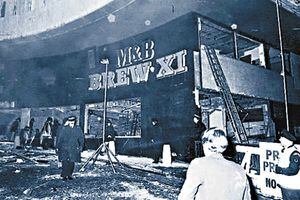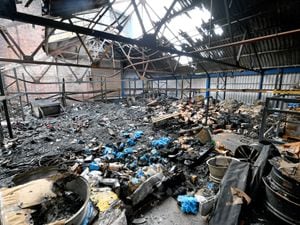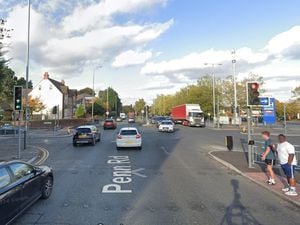Birmingham pub bombings never forgotten
With IRA commander Martin McGuinness enjoying dinner with the Queen, the Birmingham pub bombings might seem like ancient history.

For many, they probably are. But for the relatives and friends of the victims, they are a terrible scar disfiguring their lives.
And for the rest of us who remember the day when the explosions at the Tavern in the Town and the Mulberry Bush killed 21 people and injured 222 more they are an unresolved outrage.

There have been court cases, international campaigns, criminal appeals, compensation payments and speculation – but all we know at the end of it is the names of six men who were not guilty of the murders.
We certainly don't know who did it and now the West Midlands Police once again washed their hands of the whole thing.
In the very week of the first visit to Britain by a President of the Irish Republic, Michael D Higgins, it was announced a review of the case had got precisely nowhere.
While Mr Higgins is wined and dined at Windsor Castle and our Queen is obliged to suffer the extreme humiliation of being forced to sup with Mr McGuinness, the 1974 Birmingham bombings are once more swept under the carpet.
It's as if they no longer matter, it's almost as if they never happened, it's certainly as if the whole episode is one long embarrassment which the police and the Governments of both countries would be very happy to forget all about. It was a long time ago. But so was Bloody Sunday. So were the sexual assaults committed by Jimmy Savile. The Hillsborough disaster was a quarter of a century ago.
Even the alleged phone-tapping which led to the Leveson inquiry and all its fall-out took place about a decade ago.
Millions of pounds have been spent on various inquiries, prosecutions, inquests and hearings in an attempt to get to the truth of these questions.
The inquiry into the 1972 Bloody Sunday killings, in which 13 people died, took 12 years and cost a staggering £400 million. Sometimes all this seems excessive but for the families involved they are obviously necessary.
So, despite all this time and the many court hearings and judicial inquiries we have seen so far, why is nobody taking seriously the case of the Birmingham pub bombings?
There was, clearly, a miscarriage of justice when the 'Birmingham Six' were jailed for the crimes. That became an international cause celebre exposing the inadequacies of the British criminal and legal systems.
Fair enough but, if that was wrong, so is leaving the victims without any sense of justice or even an understanding of who did what and why.
West Midlands Chief Constable Chris Sims has more or less closed down the case, arguing that unless he receives significant new evidence which would support a prosecution, there's no point in doing any more. He is fighting with one hand tied behind his back. The ex-Labour MP Chris Mullin, who campaigned for years for the Birmingham Six, claims he knows who was responsible and refuses to name them.
Worse still, the police have lost 35 of the exhibits used as evidence in the Birmingham Six trial. But forensic science has moved on since 1974. What about DNA evidence which could link suspects to the bombings?
The police say: 'Whilst acknowledging improvements in forensic science, it is assessed that any results from further forensic testing would be unlikely to yield any information of value due to potential contamination, the effects of previous examination and degradation over time.'
'It is assessed' – that's a slippery way of weaselling out of it. They could do more but won't. So they don't actually know if there is any more information to be had.
Mr Sims claims the case is not closed. But one of his difficulties is he needs hard evidence that would stand up in court if someone were to be prosecuted for the crime.
That won't be necessary. There's no point in a trial. Even if the police could find the killers, and even if they were to be convicted, they'd only get 12 months in jail thanks to Tony Blair's Good Friday treaty with terrorists.
So why not carry out a full public inquiry instead – an open investigation into all the facts, that names names, calls witnesses and suspects is seen to be thorough and open?
It wouldn't be the same as seeing murderers brought to justice but it might at least resolve some unanswered questions.
The police have nothing to lose. Their reputation suffered as a result of this case. A public inquiry couldn't do any further damage.
The people who have, over the years, been named among the terrorists who ordered or committed the outrage could be required to take the stand and clear their names. If they can.
They might not face jail but if we could see the whites of their eyes we may know if they're lying.





